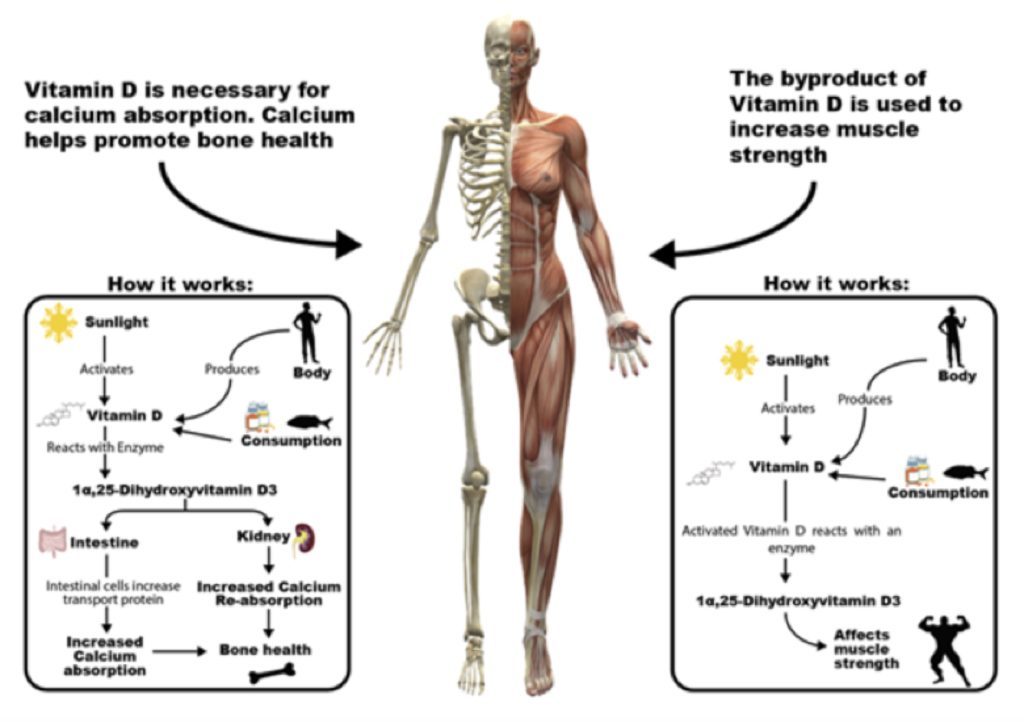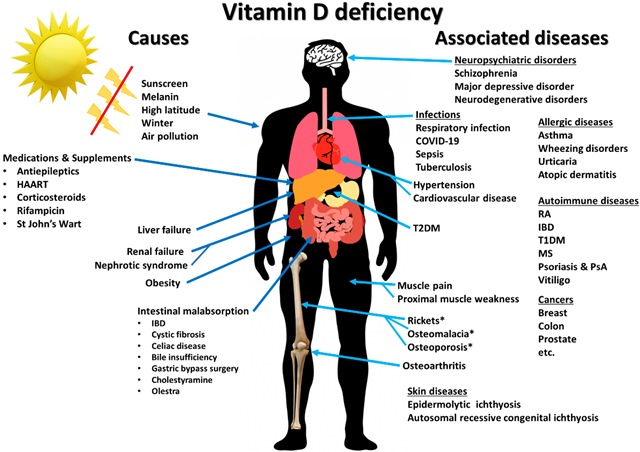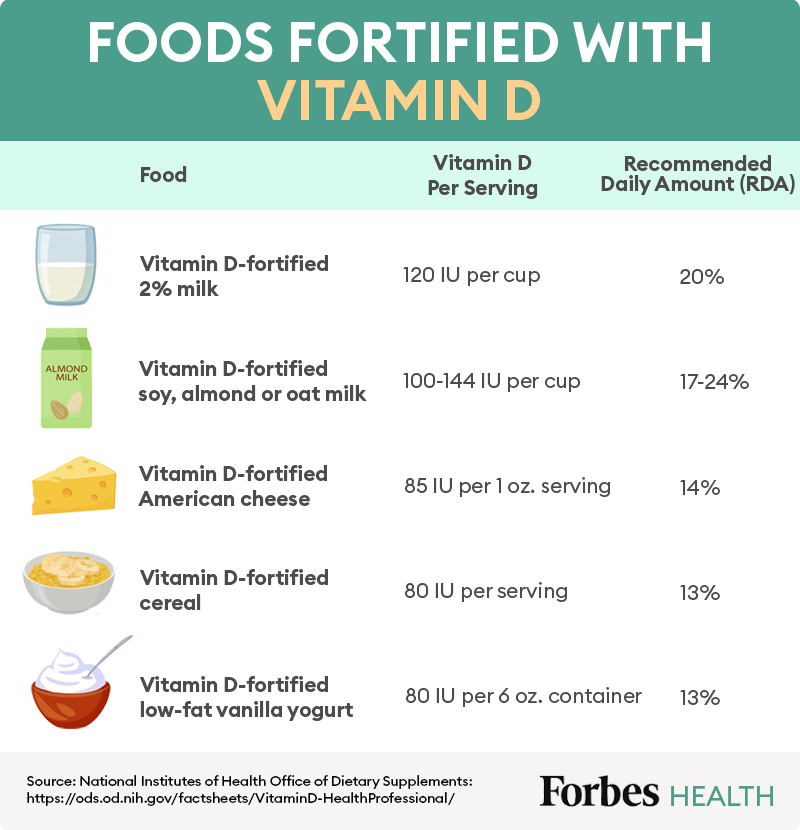Last Updated on May 16, 2023
Are you looking for a natural way to maintain strong bones and protect yourself from various diseases? Look no further than Vitamin D! Known as the “sunshine vitamin,” Vitamin D has numerous benefits for your health, particularly when it comes to your bones.
Vitamin D plays a crucial role in bone health, from improving bone density to reducing the risk of fractures. But that’s not all – recent research suggests that Vitamin D may also help prevent a variety of diseases, including cancer, multiple sclerosis, and diabetes.
So, if you want to stay healthy and strong, it’s time to start soaking up some Vitamin D!

Read: What Preventative Health Care Steps Should You Take?
How Vitamin D Contributes to Bone Health and Disease Prevention
One of the primary ways vitamin D improves bone health is through its ability to help the body absorb calcium from the diet. Calcium is a mineral that is essential for the formation and maintenance of strong bones.
When calcium is consumed, it is absorbed in the small intestine with the help of vitamin D. Without enough vitamin D, the body may only be able to absorb a small percentage of the consumed calcium. This can lead to a calcium deficiency and weakened bones.
In addition to its role in calcium absorption, vitamin D also helps to regulate the levels of calcium and phosphorus in the blood. These minerals are essential for maintaining proper muscle and nerve function, as well as for the development and maintenance of bones.
Vitamin D deficiency is associated with several bone diseases, including osteoporosis and rickets. Individuals can help reduce their risk of developing these and other bone diseases by ensuring that the body has enough vitamin D.
Read: Should You Switch to a Plant-Based Diet for Health Benefits?
Benefits of Vitamin D for Bone Health
Vitamin D is an essential nutrient that plays a big role in bone health. It is a fat-soluble vitamin naturally present in very few foods, and our body produces it when exposed to sunlight. Vitamin D helps our body absorb calcium necessary for building and maintaining strong bones.
Vitamin D deficiency has become a global health problem and can have serious consequences for bone health. In children, severe vitamin D deficiency can lead to rickets, a condition in which the bones become soft and weak, causing deformities.
In adults, vitamin D deficiency can lead to osteoporosis, a condition in which the bones become brittle and fragile, making them more susceptible to fractures.

Here are some of the ways that Vitamin D benefits bone health:
Improves Bone Density
Vitamin D helps our body absorb calcium from food, which is essential for building and maintaining strong bones. Studies have shown that people with higher levels of vitamin D have higher bone density, which means their bones are stronger.
Reduces Risk of Fractures
Vitamin D plays a huge role in maintaining bone strength and can reduce the risk of fractures, especially in older adults as mentioned earlier. A study published in the New England Journal of Medicine found that taking Vitamin D supplements reduced the risk of hip fractures in older women.
Read: How to Balance Screen Time and Health
Prevents Osteoporosis
Osteoporosis is a condition that causes the bones to become brittle and fragile, making them more susceptible to fractures. Vitamin D helps our body absorb calcium, which is essential for building and maintaining strong bones. Without enough Vitamin D, our bones can become weak and brittle, leading to osteoporosis.
May Help with Bone Healing
Another of the many benefits of Vitamin D is playing a role in bone healing. People with higher vitamin D levels have a lower risk of delayed healing after a fracture or surgery. This is because Vitamin D helps our body absorb calcium, which is essential for bone formation and repair.
May Reduce the Risk of Falls
Falls can cause bone damage in older adults. Vitamin D may help reduce the risk of falls by improving muscle function and balance.
It is recommended that adults get at least 600-800 IU (International Units) of Vitamin D daily. However, many people do not get enough Vitamin D through their diet alone. Supplementation may be necessary, especially for older adults, people with limited sun exposure, and those with darker skin.
Read: How to Boost Your Immune System Naturally
Benefits of Vitamin D for Disease Prevention
Here are some of the benefits of Vitamin D for disease prevention:

Reduces Risk of Cancer
Research has shown that Vitamin D may help reduce the risk of certain types of cancer, including colon, breast, and prostate cancer. Vitamin D plays a role in regulating cell growth and division, and a deficiency can lead to abnormal cell growth, which may increase the risk of cancer.
Improves Immune Function
Vitamin D plays a huge role in immune function, and a deficiency can weaken our immune system, making us more susceptible to infections and diseases. Vitamin D helps our immune system fight off infections and may reduce the risk of autoimmune diseases like multiple sclerosis and rheumatoid arthritis.
Reduces Risk of Cardiovascular Disease
Vitamin D may also help reduce the risk of cardiovascular disease. It helps regulate blood pressure and can reduce inflammation, which are both risk factors for heart disease.
May Reduce the Risk of Diabetes
Vitamin D may help reduce the risk of type 2 diabetes. The calcium that Vitamin D helps our body absorb is essential for insulin secretion and glucose metabolism. A deficiency in Vitamin D can lead to insulin resistance, which is a precursor to type 2 diabetes.
May Improve Cognitive Function
Vitamin D may also play a role in cognitive function. Its deficiency is associated with cognitive impairment and dementia in older adults. Vitamin D helps regulate the production of neurotransmitters, which are essential for cognitive function.
Sources of Vitamin D
While our body can produce Vitamin D when exposed to sunlight, many people do not get enough Vitamin D through their diet or exposure to sunlight alone. Therefore, knowing the sources of Vitamin D and how to incorporate them into our diet is essential.

Here are some of the best sources of Vitamin D that can provide great benefits for our bodies:
- Fatty Fish
Fatty fish, such as salmon, tuna, and mackerel, are excellent sources of Vitamin D. A 3.5-ounce serving of cooked salmon provides around 600-1000 IU of Vitamin D, which is more than the daily recommended intake for adults.
- Egg Yolks
Egg yolks are another good source of Vitamin D. A large egg yolk provides around 40 IU of Vitamin D. However, it is important to note that the majority of the Vitamin D in an egg is found in the yolk, so it is best to consume the whole egg rather than just the egg white.
- Mushrooms
Mushrooms are the only plant-based source of Vitamin D. However, not all mushrooms are created equal. Only certain types of mushrooms, such as shiitake, are exposed to UV light, increasing their Vitamin D content. One cup of sliced, raw shiitake mushrooms provides around 30 IU of Vitamin D.
- Fortified Foods
Many foods contain Vitamin D, including milk, orange juice, and cereal. For example, one cup of fortified milk provides around 100 IU of Vitamin D. It is essential to read the labels of these products to ensure that they are fortified with Vitamin D.
- Sunlight
The most natural source of Vitamin D is sunlight. Our body produces Vitamin D when our skin is exposed to UVB radiation. However, the amount of Vitamin D produced depends on various factors, such as time of day, season, and skin color.
It is recommended to spend around 10-15 minutes in the sun daily without sunscreen to help our body produce Vitamin D.
Actionable Tips to Increase Your Body’s Vitamin D Intake
As severally emphasized, Vitamin D is an essential nutrient that is vital in maintaining good health. It helps to regulate calcium and phosphorus levels in the body, which is necessary for strong bones, teeth, and muscles.
Unfortunately, many people are deficient in this nutrient, which can lead to a variety of health problems.
This is why to ensure that you are getting enough Vitamin D in your diet or through sunlight exposure, there are several steps you can take.

Here are some actionable tips:
- Get a blood test: Talk to your doctor about getting a blood test to check your Vitamin D levels. This will help you determine if you need to increase your Vitamin D intake.
- Get sunlight exposure: Try to spend at least 15-20 minutes in the sun daily. This will help your body produce Vitamin D naturally. Be sure to wear sunscreen after this time to avoid skin damage.
- Eat foods rich in Vitamin D: Incorporate foods such as fatty fish, egg yolks, and fortified dairy products into your diet. This will help you get the necessary amount of Vitamin D your body needs.
- Consider supplements: If you are unable to get enough Vitamin D through diet or sunlight, talk to your doctor about taking a Vitamin D supplement. They can help you determine the proper dosage based on your individual needs.
Before you go…
Hey, thank you for reading this blog to the end. I hope it was helpful. Let me tell you a little bit about Nicholas Idoko Technologies. We help businesses and companies build an online presence by developing web, mobile, desktop, and blockchain applications.
We also help aspiring software developers and programmers learn the skills they need to have a successful career. Take your first step to becoming a programming boss by joining our Learn To Code academy today!
Be sure to contact us if you need more information or have any questions! We are readily available











